-
About
- About Listly
- Community & Support
- Howto
- Chrome Extension
- Bookmarklet
- WordPress Plugin
- Listly Premium
- Privacy
- Terms
- DMCA Copyright
- © 2010-2025 Boomy Labs


 Vaishnavi Kumar
Vaishnavi Kumar
Listly by Vaishnavi Kumar
There’s a bewildering array of books out there on mythology but here are some brilliant ones to get you started.
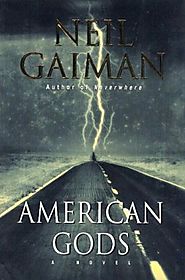
American Gods is a novel by English author Neil Gaiman. The novel is a blend of Americana, fantasy, and various strands of ancient and modern mythology, all centering on the mysterious and taciturn Shadow. Our hero, Shadow Moon, travels across America, tangling with deities from a number of ancient religions as he finds himself pulled into a strange, divine war that pits old gods against new.

The Immortals of Meluha is the first novel of the Shiva trilogy series by Amish Tripathi. The story is set in the land of Meluha and starts with the arrival of the Shiva. The Meluhans believe that Shiva is their fabled saviour Neelkanth.
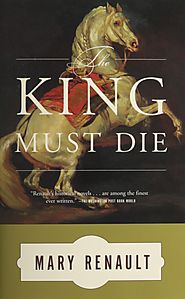
The King Must Die is a 1958 bildungsroman and historical novel by Mary Renault that traces the early life and adventures of Theseus, a hero in Greek mythology.

The Lightning Thief is a 2005 fantasy-adventure novel based on Greek mythology, the first young adult novel written by American author Rick Riordan. It follows a young demigod as he grapples with growing up, being the son of Poseidon, etc. It's a witty update of ancient deities and unspeakable monsters duking it out in the real world.
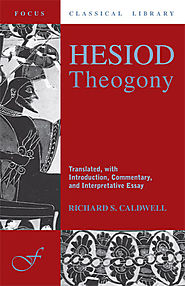
The Theogony is a poem by Hesiod describing the origins and genealogies of the Greek gods, composed c. 700 BC. It is written in the Epic dialect of Ancient Greek.
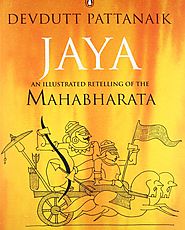
High above the sky stands Swarga, paradise, abode of the gods. Still above is Vaikuntha, heaven, abode of God. The doorkeepers of Vaikuntha are the twins, Jaya and Vijaya, both whose names mean victory . One keeps you in Swarga; the other raises you into Vaikuntha. In Vaikuntha there is bliss forever, in Swarga there is pleasure for only as long as you deserve. What is the difference between Jaya and Vijaya? Solve this puzzle and you will solve the mystery of the Mahabharata. In this enthralling retelling of India s greatest epic, the Mahabharata, originally known as Jaya, Devdutt Pattanaik seamlessly weaves into a single narrative plots from the Sanskrit classic as well as its many folk and regional variants.
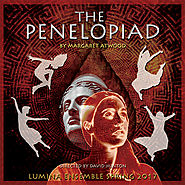
The Penelopiad is a novella by Margaret Atwood. It was published in 2005 as part of the first set of books in the Canongate Myth Series where contemporary authors rewrite ancient myths.
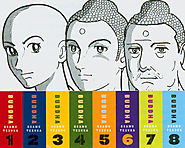
Osamu Tezuka’s vaunted storytelling genius, consummate skill at visual expression, and warm humanity blossom fully in his eight-volume epic of Siddhartha’s life and times. Tezuka evidences his profound grasp of the subject by contextualizing the Buddha’s ideas; the emphasis is on movement, action, emotion, and conflict as the prince Siddhartha runs away from home, travels across India, and questions Hindu practices such as ascetic self-mutilation and caste oppression. Rather than recommend resignation and impassivity, Tezuka’s Buddha predicates enlightenment upon recognizing the interconnectedness of life, having compassion for the suffering, and ordering one’s life sensibly. Philosophical segments are threaded into interpersonal situations with ground-breaking visual dynamism by an artist who makes sure never to lose his readers’ attention.
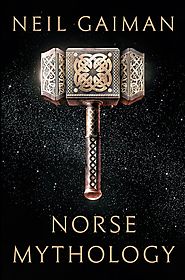
The great Norse myths are woven into the fabric of our storytelling - from Tolkien, Alan Garner and Rosemary Sutcliff to Game of Thrones and Marvel Comics. They are also an inspiration for Neil Gaiman's own award-bedecked, bestselling fiction. Now he reaches back through time to the original source stories in a thrilling and vivid rendition of the great Norse tales. Gaiman's gods are thoroughly alive on the page - irascible, visceral, playful, passionate - and the tales carry us from the beginning of everything to Ragnarok and the twilight of the gods. Galvanised by Gaiman's prose, Thor, Loki, Odin and Freya are irresistible forces for modern readers and the crackling, brilliant writing demands to be read aloud around an open fire on a freezing, starlit night.
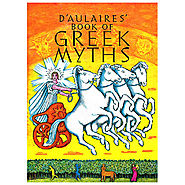
No education is complete without a large slice of Greek mythology. And there's no better way of meeting that literary quota than with the D'Aulaires' book. All the great gods and goddesses of ancient Greece are depicted in this big, beautiful classic, lovingly illustrated and skillfully told. Young readers will be dazzled by mighty Zeus, lord of the universe; stirred by elegant Athena, goddess of wisdom; intimidated by powerful Hera, queen of Olympus; and chilled by moody Poseidon, ruler of the sea. These often impetuous immortals flounce and frolic, get indiscreet, and get even. From petty squabbles to heroic deeds, their actions cover the range of godly--and mortal--personalities.

An ambivert with a belief that being comfortable in one's own skin is a super power.
https://anthropologicallycorrect.wordpress.com/